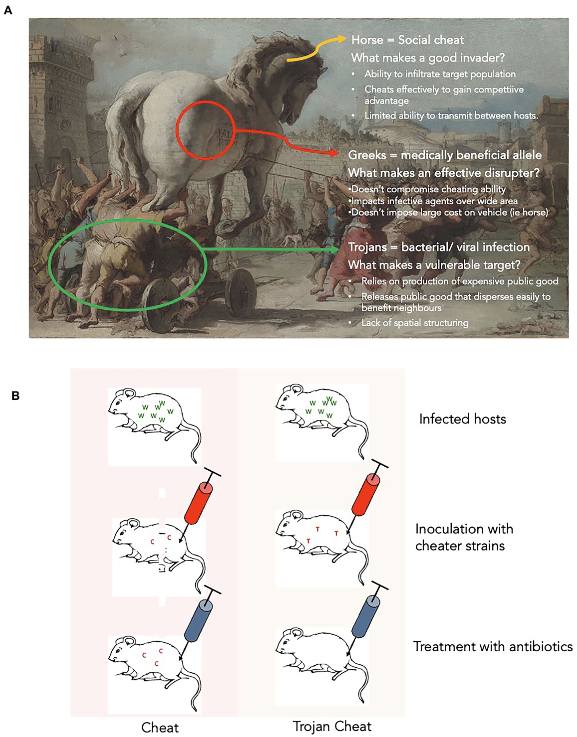
Fig. 1 | The concept of the Trojan Horse strategy. A The invasive potential of social cheats can be exploited to drive medically beneficial alleles into a target population. However, the ability of this to be successful depends on a number of factors, some of which are listed. The good news is that evolutionary biology generates theoretical predictions about which conditions are likely to be more favourable. [Image modified from “The Procession of the Trojan Horse into Troy” by Giovanni Domenico Tiepolo, under creative Common License V4, creativecommons.org/licenses/by-nc-nd/4.0/]. B The process for implementing an intervention strategy based on the ability of bacterial cells or viral genomes to act as social cheats. The left-hand column illustrates the “treat with cheats” strategy: infected hosts are inoculated with a cheat strain which disrupts the ability of the infecting population to survive and/or reproduce; the resulting cheat-only population may have reduced virulence, or in the case of obligate cheating common in viruses, go extinct. The right-hand column illustrates use of the Trojan Horse strategy to reduce bacterial population resistance to antibiotics.
Abstract
Despite generating a great deal of interest in the form of review papers, progress in exploiting social dynamics for treatment strategies against bacterial infection has made limited progress since it was suggested twenty years ago. In contrast, anti-viral strategies based on social interactions are entering clinical trial stage. We explore possible reasons for this difference and highlight areas where the two fields of research may learn from one another.